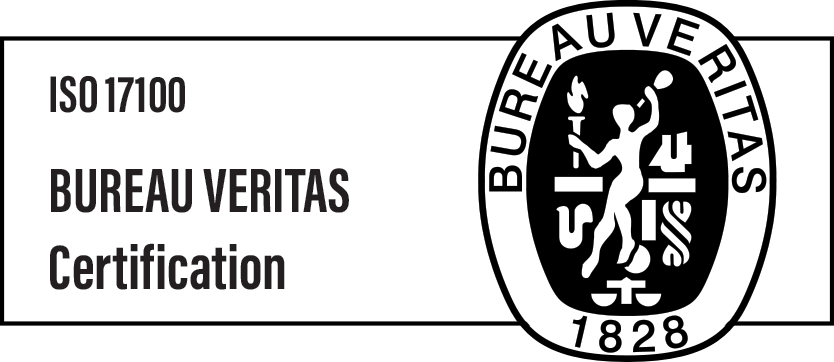5 ways powerful copywriting can elevate your brand perception

Guests don’t just read your brand—they feel it
When travelers land on your website, they don’t just look at pictures or scroll through room options. They read. They scan headlines, click on offers, and skim through descriptions. And whether they realize it or not, your words tell them exactly what to expect—not just about the service, but about the experience.
Powerful copywriting is often underestimated in hospitality. Brands invest heavily in photography, booking systems, and design, but the language that ties it all together is often written last—and rushed. Yet words shape the emotional and practical tone of every interaction. They welcome, reassure, and persuade. Or, when done poorly, they confuse, bore, or drive guests away.
The best copy doesn’t just describe amenities. It conveys personality. It invites readers to feel something—to relax, explore, laugh, trust. And when it’s supported by a Language Service Provider with localization expertise, it does so across every language and market.
This article explores how copywriting, done strategically and adapted with care, influences brand perception. Whether you’re launching a multilingual campaign, rewriting a website, or improving booking flow, your words matter. Let’s take a look at five ways powerful, professional copywriting can help your hospitality brand stand out and earn long-term trust.

Clear language creates confident users
1. Clear language creates confident users
Clear language builds confidence. When users land on your site and immediately understand what you offer, how to book, and what makes you special, they are more likely to engage and convert. Confusion, on the other hand, leads to hesitation—and hesitation leads to drop-offs.
Clarity doesn’t mean using only simple words. It means using the right ones. Words that are precise, relevant, and easy to scan. Strong copywriting avoids industry jargon, vague phrasing, or wordy explanations. Instead, it guides the reader, step by step, with purpose.
In hospitality, clarity also plays a big role in reducing booking friction. Descriptions of rooms, packages, and policies should be written in a way that minimizes the need for guesswork. Calls to action must be direct and visible. Menus, navigation labels, and help text all contribute to a guest’s sense of orientation and trust.
For multilingual audiences, clarity becomes even more important. A direct translation of your English content may not read clearly to someone in Germany or Brazil. Cultural phrasing, idioms, and sentence structure all influence how easily a message is understood.
That’s where an experienced LSP adds value. They don’t just convert words—they localize tone, simplify complexity, and ensure clarity across every touchpoint. The result is a website or brochure that feels intuitive, not confusing. And the more confident your guest feels while reading, the more confident they’ll feel about booking.

Emotionally resonant language makes you memorable
2. Emotionally resonant language makes you memorable
Guests don’t just want a place to stay—they want to feel something about the experience they’re booking. Whether it’s anticipation before a city break, calm before a spa retreat, or connection before a family holiday, emotion plays a big role in choosing a brand. That emotion starts with your copy.
The best hospitality copy doesn’t just list amenities. It paints a picture. A phrase like “Steps from the beach” is informative, but “Wake up to the sound of the ocean” creates a feeling. That feeling is what lingers in a guest’s mind. Emotional language helps your property stand out, not just as an option, but as the right option.
Emotion also builds trust. When a guest reads something that resonates—something that feels written just for them—they’re more likely to believe in your promises. Good copy helps guests imagine themselves in your hotel, enjoying the experience you offer. And when they can see themselves there, they’re more likely to book.
This doesn’t mean being overly poetic or dramatic. Emotionally resonant copy can still be clean and professional. The key is tone. It should match your brand voice and your audience’s expectations—something a skilled LSP can help adapt for different cultures.
In a crowded digital landscape, emotion is the shortcut to memory. Great copy stays with the reader long after they’ve closed the tab. That’s the kind of impression that turns browsers into loyal guests.

Consistent tone builds stronger brand identity
3. Consistent tone builds stronger brand identity
Your brand isn’t just a logo or color palette—it’s a voice. That voice should be recognizable across all touchpoints, from your homepage to your post-stay emails. When the tone of your copy is consistent, it strengthens your identity. When it’s inconsistent, it weakens it.
Imagine your booking page sounds cheerful and personal, but your FAQ section reads like a legal document. Or your English copy is lively and conversational, but the French version sounds stiff and overly formal. This kind of tone mismatch creates confusion. It makes the brand feel fragmented, and in hospitality, that fragmentation erodes trust.
A clear, consistent tone helps guests know who you are and what to expect. Are you warm and approachable? Sophisticated and premium? Down-to-earth and family-focused? That tone should carry through every sentence—across every language.
Maintaining that tone is challenging, especially in multilingual content. That’s where Language Service Providers offer real value. They help define tone guidelines, train linguists on brand voice, and adapt content so that it resonates without compromising style. Whether you’re writing a marketing campaign or updating your cancellation policy, tone should be an extension of your identity.
Strong tone builds familiarity. And familiarity builds trust. In an industry where emotional connection and reputation matter deeply, your tone might be one of your most valuable assets. Use it well—and use it consistently.

Smart copy reduces friction at every step
4. Smart copy reduces friction at every step
The booking journey isn’t just about the big decisions—it’s made up of small moments of clarity or confusion. Copywriting plays a crucial role in reducing friction throughout that journey. Every form field, error message, and confirmation email either helps a guest move forward or causes them to hesitate.
Poorly written or overly formal copy can slow users down. They may not understand cancellation terms, feel unsure about how to apply a promo code, or abandon their cart if the checkout feels unclear. Good copy, on the other hand, anticipates their needs and reassures them at every point.
Friction doesn’t just happen in English. Direct translations often miss the subtle cues that guide guests through actions. A phrase that works on a U.S. website might seem abrupt to a Japanese audience or confusing to someone from Brazil. If the instructions or CTAs aren’t adapted, friction increases and conversion drops.
Effective hospitality copywriting solves this by being practical, direct, and human. It turns legal language into clear policies. It makes sign-up forms feel less like chores. And when supported by LSPs with UX expertise, it ensures every element—from button text to error labels—is optimized for clarity and flow in every language.
Less friction means less hesitation. And when users move smoothly through your site, they’re more likely to complete their booking—and return next time.

Cultural adaptation turns good copy into great experience
5. Cultural adaptation turns good copy into great experience
Cultural context matters. A phrase that feels warm in English might seem too informal in German. A joke that works in Spain might fall flat in Japan. To truly connect with global audiences, your copy must reflect local expectations, not just linguistic accuracy.
Cultural adaptation is what transforms copywriting from good to exceptional. It’s the difference between “translated” and “native-sounding.” Local readers should feel like the content was written for them—not for someone else and adjusted as an afterthought.
LSPs with transcreation expertise are key to this process. They ensure your copy maintains its original tone, emotion, and intent, while adapting it to fit cultural norms and sensitivities. This goes beyond vocabulary. It includes formality levels, punctuation styles, idiomatic expressions, and how benefits are framed.
For example, a U.S. hotel might emphasize convenience and flexibility, while a Japanese audience might respond better to reliability and respect. A skilled team of linguists can guide these shifts, making sure that the core message lands with the right emotional impact.
When guests feel like your brand understands them, trust builds fast. And in hospitality, trust is the gateway to loyalty.
Copy is more than content—it’s experience
Copy is everywhere on your website—from the headline on your homepage to the small print in your footer. Each word is an opportunity to create connection, clarity, and confidence.
It’s not just about what you say, but how you say it—and how that message travels across languages and cultures.
When crafted strategically, copywriting becomes more than content. It becomes experience. It shapes how guests feel, what they remember, and whether they return.
Language Service Providers help you unlock that power. With transcreation, tone consistency, and cultural insight, they ensure your message isn’t just accurate—it’s compelling.
If design gets their attention, copy earns their belief. And belief is what elevates your brand from good to trusted.

